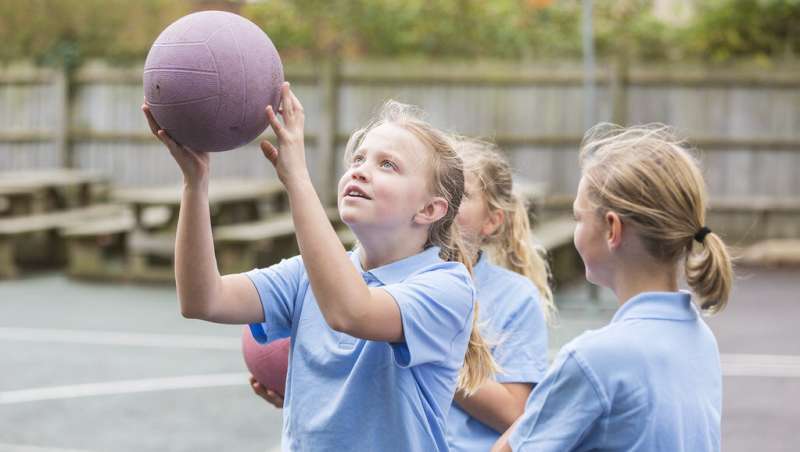Study finds huge disparities in participation in extra-curricular activities depending on social background

Children from the wealthiest backgrounds are three times more likely to take music classes out of school hours than those from the poorest families and there is a 20 percent participation gap in sport, new research shows.
The study
from the Social Mobility Commission reveals huge disparities in the participation rates in a wide range of extra-curricular activities depending on
An Unequal Playing Field, which looks at activities such as arts, music, sport, dance, voluntary work, and youth clubs, shows that taking part depends on: the school you go to, the area where you grow up and your socio-economic background.
As household income rises, so does increased participation. Those from better off families are also likely to engage in a greater number of activities out of school. Children from the poorest backgrounds are three times more likely to not take part in any extra-curricular activity compared to those from the richest families.
Some classes are expensive but there are other barriers for the less affluent. In certain areas there are access difficulties—schools don't provide these activities and youth provision has been cut back by local councils. Sometimes, however, young people from disadvantaged backgrounds do not take part because they lack confidence or fear they will not fit in.
The researchers, from the University of Bath's Institute for Policy Research (IPR) and Department of Education, found that young people who do participate gain confidence and build up social skills much sought after by employers. They are also more likely to aspire to go onto higher or further education.
"It is shocking that so many people from poorer backgrounds never get the chance to join a football team, learn to dance or play music," said Dame Martina Milburn, Chair, Social Mobility Commission. "The activity costs too much, it isn't available or people just feel they won't fit in. As a result they miss out on important benefits: a sense of belonging, increased confidence and social skills which are invaluable to employers. It is high time to level the playing field."
The Commission sets out four key recommendations for the government, voluntary groups and schools:
- Introduce a national extra-curricular bursary scheme for disadvantaged families
- Provide funding to develop and extend voluntary sector initiatives which allow access to activities
- Increase the capacity of schools to provide extra-curricular activities and provide extra information
- Improve data collection and carry out further research into soft skill development
The project involved Dr. Michael Donnelly and Dr. Andres Sandoval-Hernandez from the University of Bath's Department of Education and Dr. Predrag Lazetic from the Institute for Policy Research (IPR).
Lead academic, Dr. Michael Donnelly from the University, explains: "Our findings point to the concerted efforts of the sharp-elbowed middle classes, taking up every opportunity they can to nurture their child's sporting, musical and artistic abilities.
"Years of austerity have left the poorest in society without these opportunities, as youth centres have closed, and available activities have shifted further towards costly private provision. Government needs to take action to ensure that all children have equal opportunities to do something they enjoy, irrespective of their background."
The research, which was commissioned by Damian Hinds, the Education Secretary, also discloses wide geographical differences in provision and participation rates. Young people in Northern Ireland, for example joined in most in activities like attending youth clubs while the North East has the lowest participation in music classes.
There are also big ethnic variations in activity take-up. Around four percent of British Pakistani youth take music classes, compared to 28 percent of British Indian and 20 percent of White British youth.
Key findings:
- Nearly three times as many children from the highest income households take part in music activities (32 percent) compared to the lowest income households (11 percent)
- Sixty-four percent of young people from the highest income households take part in sport compared to 46 percent of young people from the lowest incomes
- Around four percent of British Pakistani youth take music classes, compared to 28 percent of British Indian and 20 percent of White British youth
- Fewer young people in the North East of England take music classes than anywhere else—9 percent, compared to 22 percent in the southeast
- Sport is by far the most popular extra-curricular activity with nearly 50 percent of youth taking part compared to only 8 percent doing art.
- Children from the poorest backgrounds are three times more likely to not take part in any of the extra-curricular activities examined compared to those from the wealthiest backgrounds.
John Herriman, chief executive of Greenhouse Sports, a charity helping disadvantaged children through sport, said: "Extra-curricular activity is so important for young people, and can be especially advantageous in helping to improve the life-chances of those from disadvantaged backgrounds. It is the basis of our entire approach at Greenhouse Sports, where we deliver intensive sports coaching and mentoring."
Charlotte Hill, Chief Executive, #iwill Campaign said: "Great education leaders know that education is about more than grades. Taking part in volunteering and other activities is a great way for young people to develop their character, confidence and vital skills for the future."
More information: An Unequal Playing Field: Extra-Curricular Activities, Soft Skills and Social Mobility - assets.publishing.service.gov. … ing_Field_report.pdf
Provided by University of Bath



















